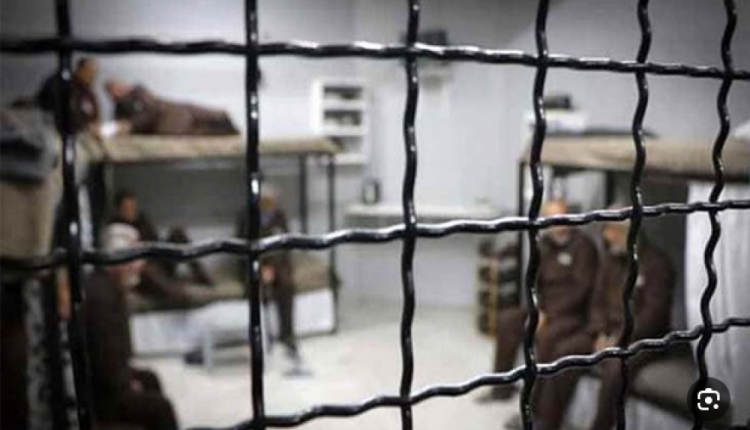RAMALLAH, Sep. 01 (YPA) – The Palestinian Prisoners Club has confirmed that Israeli violations against prisoners are continuing at an escalating pace. The club noted that policies of systematic starvation, medical neglect, and repression have become daily features of life inside prisons, amidst a widespread outbreak of diseases and the denial of prisoners’ most basic human rights.
In a new briefing, the Palestinian Prisoners Club presented findings from recent field visits to Gilboa, Negev, Megiddo, Ramla, and Ofer prisons during the second half of August. The report revealed that Israeli occupation prison authorities continue to impose a diet based on meager rations of bread, vegetables, rice, beans, and small pieces of processed meat, which has exacerbated prisoners’ health issues.
At Gilboa Prison, weekly repression and search operations have continued, involving the use of police dogs, weapons, and electric prods, accompanied by physical and verbal assaults. Meanwhile, a widespread outbreak of scabies has been recorded at Ofer Prison, affecting prisoners, including children. This has been compounded by a lack of medical care and the mixing of infected individuals with uninfected ones, doubling the suffering of detainees, with some even experiencing bleeding from constant itching.
In Megiddo Prison, despite limited treatment, the health of prisoners remains in decline, especially among those with chronic illnesses like cancer, heart conditions, and high blood pressure. Concerns are also escalating about the potential for a renewed spread of scabies in Negev Prison at the same rate that preceded the martyrdom of several prisoners earlier.
At the Ramla prison clinic, where 22 seriously ill prisoners are held, prison authorities recently used gas against sick prisoners, leading to cases of suffocation and fainting.
The Palestinian Prisoners Club noted that the number of detainees in Israeli prisons reached approximately 10,800 at the beginning of August, the highest figure since 2000. This number includes 49 female prisoners, over 450 children, 3,613 administrative detainees, and 2,378 individuals classified as “unlawful combatants.”
The club renewed its call for human rights and international organizations to fulfill their responsibilities and take practical steps to hold the occupation accountable for its crimes against prisoners. It also called for an end to the policy of impunity, which allows systematic violations to continue unchecked.
YPA


